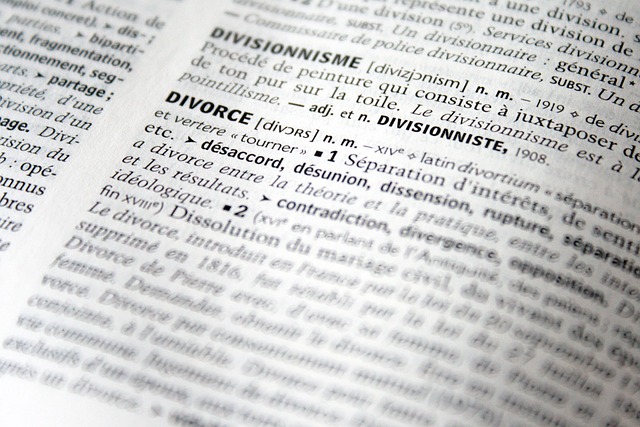Litigation Risk Management strategically identifies, assesses, and mitigates legal risks for individuals and organizations facing civil or criminal proceedings. In high-stakes criminal cases, it's vital to understand and protect defendants' rights, such as the right to counsel and protection from unreasonable searches (Fourth Amendment). Effective management involves risk assessments, policy development, proactive measures, and understanding evolving legal precedents. Early case assessment, strategic navigation of complexities, and robust documentation enhance success rates in negotiations and trials, upholding clients' rights throughout.
In the complex landscape of legal practice, litigation risk management is an indispensable strategy. This comprehensive guide delves into the intricacies of understanding and mitigating risks, offering a 360-degree view of the process. We explore key aspects such as defendants’ rights in criminal cases, highlighting crucial protections and strategic interventions. By examining effective risk mitigation techniques, legal professionals can navigate complex scenarios with confidence, ensuring robust defenses and favorable outcomes. Discover insights that empower your practice and fortify against litigation challenges.
- Understanding Litigation Risk Management: A Comprehensive Overview
- Defendants' Rights in Criminal Cases: Protections and Strategies
- Effective Risk Mitigation Techniques for Legal Professionals
Understanding Litigation Risk Management: A Comprehensive Overview

Litigation Risk Management is a strategic process designed to identify, assess, and mitigate potential legal risks faced by individuals or organizations involved in civil and criminal proceedings. It’s about more than just avoiding lawsuits; it’s about understanding the complex web of rights and responsibilities that exist within the legal system. In high-stakes cases, especially criminal ones where defendants’ rights are paramount, effective risk management can be a game-changer.
This process involves thorough risk assessments, policy development, and proactive measures to safeguard against liabilities. By anticipating potential issues and implementing robust strategies, individuals and entities can protect their interests and maintain an unprecedented track record of success in navigating legal complexities. It’s about ensuring that every step taken is legally sound and that all possible scenarios are considered, thereby fostering a strong defense or offense strategy for his clients.
Defendants' Rights in Criminal Cases: Protections and Strategies

In criminal cases, defendants’ rights are a cornerstone of fair justice, ensuring that individuals accused of crimes are treated with dignity and according to established legal principles. These rights encompass various protections designed to safeguard against potential abuses during all stages of the investigative and enforcement process. Key among these is the right to counsel, enabling defendants to have legal representation throughout their case, which can significantly influence its outcome. Additionally, the Fourth Amendment protects citizens from unreasonable searches and seizures, a crucial defence mechanism for those facing criminal charges.
Understanding these rights is pivotal for both corporate and individual clients alike. An unprecedented track record of successful litigation risk management often hinges on strategic utilisation of defendants’ rights in criminal cases. By leveraging these protections, legal teams can build robust defences, challenge evidence, and navigate complex procedural rules. This strategic approach not only strengthens the client’s position but also ensures that their rights are upheld throughout the legal process.
Effective Risk Mitigation Techniques for Legal Professionals

Legal professionals face a complex landscape when it comes to litigation risk management. An effective strategy involves a multi-faceted approach to mitigate risks at every stage. One powerful technique is early case assessment, where attorneys thoroughly evaluate the strengths and weaknesses of a case. By identifying potential pitfalls and evaluating defendant rights in criminal cases, legal teams can strategically navigate the complexities, ensuring a robust defense. This proactive method has proven to be an unprecedented track record for many law firms, significantly enhancing their success rates in both settlement negotiations and jury trials.
Additionally, staying informed about evolving legal precedents and regulations is vital. Legal professionals must remain agile, adapting their strategies as new insights emerge. Thorough documentation and transparent communication throughout all stages of the investigative and enforcement process are key to managing risk. This includes meticulously recording evidence collection, witness interviews, and any changes in case strategy, fostering a culture of accountability and ensuring the best possible outcomes for clients.
Litigation Risk Management is a multifaceted discipline that involves understanding and mitigating risks at every stage of legal proceedings. By embracing effective risk mitigation techniques, legal professionals can enhance client outcomes and protect defendants’ rights in criminal cases. Balancing the need for thorough case preparation with strategic protections ensures fairness and justices for all involved. Staying informed about defendants’ rights and employing robust risk management strategies are key to navigating today’s complex legal landscape successfully.






